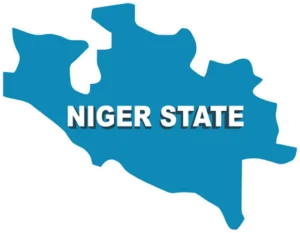Infrastructure deficits: Time to end large fund approval, substandard projects
Deficits in infrastructures have remained among the top frontal issues of discourse on the Nigerian economy. The subject has remained central given the emphasis on the necessity of infrastructures to propel growth across sectors in the economy. While it is indisputable that such infrastructures as roads, railways, and waterways for transportation, have remained germane for Industrial and commercial activities, the profile of the available infrastructures in the Country has not too far been one of good appeal to the demands of the economy. This, as it has been observed, may not be largely due to the fact that there has not over the years been budgetary allocations for substantial projects to boost infrastructures, but it appears the system of administration which have governed the execution of these projects, so far, remains questionable.
The prevailing system, as observed, would be said to be ridden with clusters of deficiencies which have left huge deficits behind; such that, rather than moving forward to see new projects taking sustainable turn of adding to the profile of a robust infrastructure base, the grounded leakages have left deficiencies making executed projects to have short life span, and as such demanding recurring fixture. Hence, rather than forging ahead towards a virile infrastructure profile, the weakenesses have left unsavoury fate for projects which ought to have been settled. The deficient syndrome borne by corruption, poor administrative system, inefficient posture to governance, and whatever reasons, have seen projects which ought to have been settled for sustabilibilty, but in their weakness to meet the quality standard for durability, falling short into dilapidation, demanding recurring allocations in a short-time for a re-fixture.
Hence, earmarking large sums for capital projects in Nigeria has not been a paucity but executing such projects with the depth of efficiency at the height of the most preferred and obtainable quality for standard of durability towards the end of sustainability has been the bane of troubles. On Wednesday, the Federal Executive Council (FEC) approved a whooping sum of N115.4billion for the dualisation of the proposed Kano-Kazaure-Kongolam highway in Katsina State from a single carriageway to a dual carriageway. The Minister of Works and Housing, Babatunde Fashola, who disclosed this while briefing State House correspondents at the end of the council meeting presided over by President Muhammadu Buhari, at the Council Chambers, Presidential Villa, Abuja, explained that the project which covers 131.4 kilometres is expected to be completed within a period of 48 months.
“The Ministry of Works and Housing presented a memo for the dualisation of the Kano-Kazaure-kongolam highway, 131.4 kilometres from a single carriageway to a dual carriageway. So, Council approved that proposal at a cost of N115,425,896,907.15 kobo over 48 months. The instructive thing is that the financing will be done by the Tax Credit Scheme of Bua International Limited. And they will use Messrs PW Construction Nigeria Limited, a company in which they have acquired some interest to undertake the construction,” he was quoted.
Also coming out of the meeting, were other infrastructural projects for which funds were approved for their execution. For other projects bordering on transportation, the Minister of Transportation, Rotimi Amaechi, following the meeting, disclosed that two memos having to do with contracts for sundry consultancy services for the supervision of the various railway projects in the Country were presented. According to him, the consultancy services were approved with the total cost of $183.7million for the contractors including GIX Engineers Infrastructure Excellence/Yaroso & Partnership Ltd, Core Consulting Engineering Plc for Abuja to Warri.
He said, “Remember that we have about three railway projects that are yet to start construction and they include the Port Harcourt-Maiduguri, Kano-Maradi and then the Abuja-Warri. For the consultancy services for supervision of Port Harcourt-Maiduguri Railway, with branch lines to Bonny Deep Seaport and Port Harcourt Industrial Park and then to Owerri. We have Kyari Consults SDMBHD/Jamood Global Services Limited at $97.5 million.
“The first one is $38.4million. Consultancy Services for the supervision of Kano-Katsina-Jibia-Maradi Rail-line to TEAM (Technics Engineering Architecture Marketing Nigeria Limited) and that is for $47,670,000 million. All of them are for a period of 36 months.
“The second one is that the cabinet approved a concessionaire agreement for the Ministry of Transportation to concession the Onitsha River Port to a company called Inversal Elysium Consortium. They are to manage the river port for 30 years.”
For health, the Minister of State for Health, Olorunimbe Mamora, disclosed that Council approved the award of contract for consultancy services to facilitate the building of the corporate headquarters of the National Health Insurance Scheme in Abuja.
“The need has become inevitable to expand what is on grand to improve the operational efficiency of that agency, which is the National Health Insurance Scheme and happily, the Council considered the memo approved same,” he was quoted.
While the approval of funds for the various infrastructural projects is a welcome idea, the need to coordinate efforts through systemic response to ensure proficiency, efficiency and effectiveness with the depth of due diligence to the execution of the projects is more significant. Just as timelines have been attached to the projects, ensuring they are executed with the most obtainable standard, vitalised with the depth of best quality for durability unto sustainability within the permitted time frame is pertinent. It is within the framework of such possibilities that the infrastructural profile of the Country can be pushed unto the end of sustainability for the demands of a robust infrastructure base to foster a virile economy.
Beyond mere approval of funds, it has therefore become sacrosanct for the Presidency which stands at the echelon of the executive architecture to entrench its monitoring framework for closer supervision to ensure the best deliverables from the projects. This is just as it behooves the National Assembly to wake to its oversight function. Intimating its relevant committees to give close monitoring to the projects for which funds have been approved is sacrosanct, while it behooves all lawmakers whose constituencies fall within the areas of the intended projects to keep eagle eyes for check. Such coordinated efforts are essential to bring to an end, the unsavoury syndrome of inefficiencies informing project execution in the Country – a posture that has rendered infrastructure profile in the Country aback.




